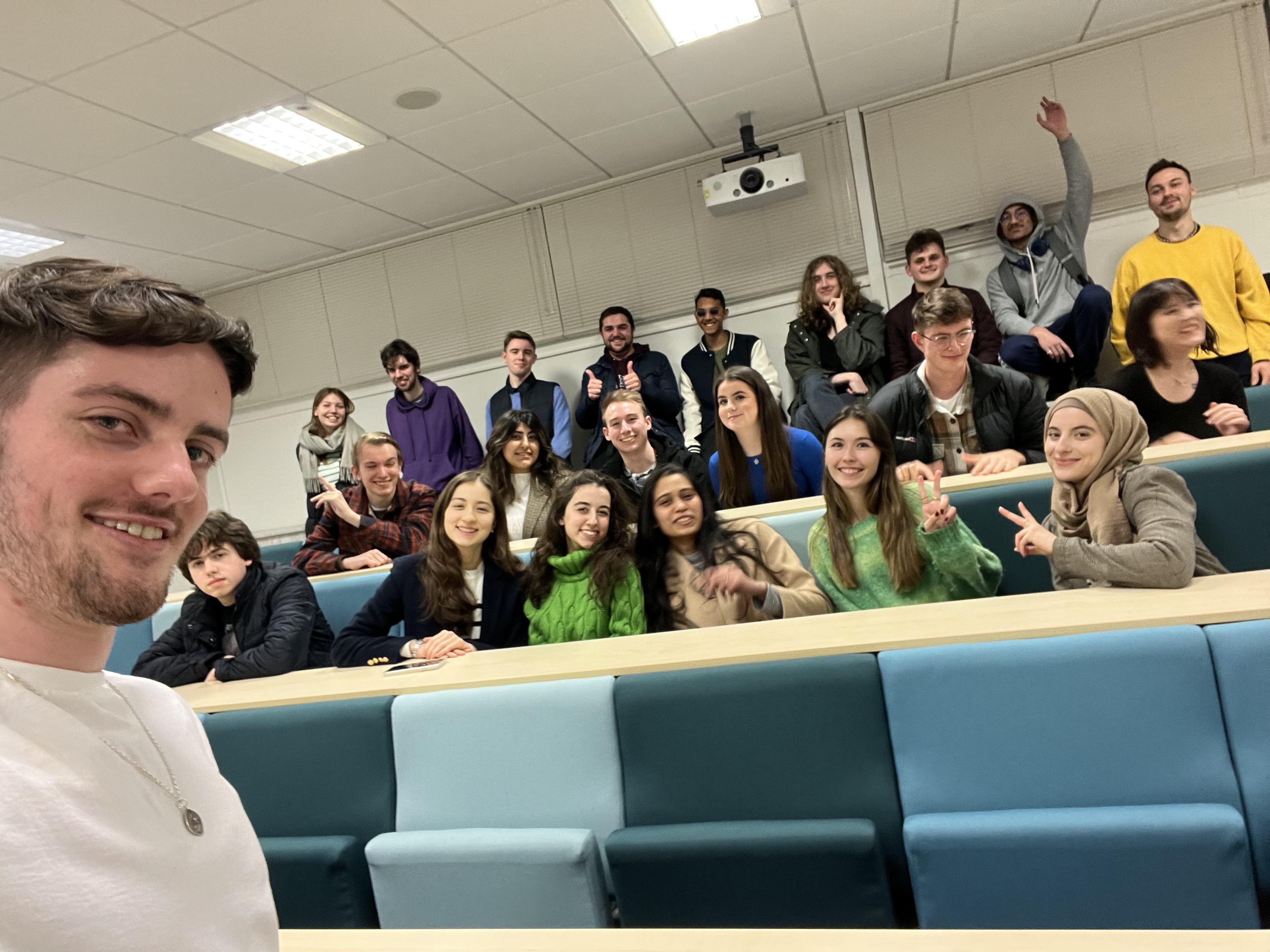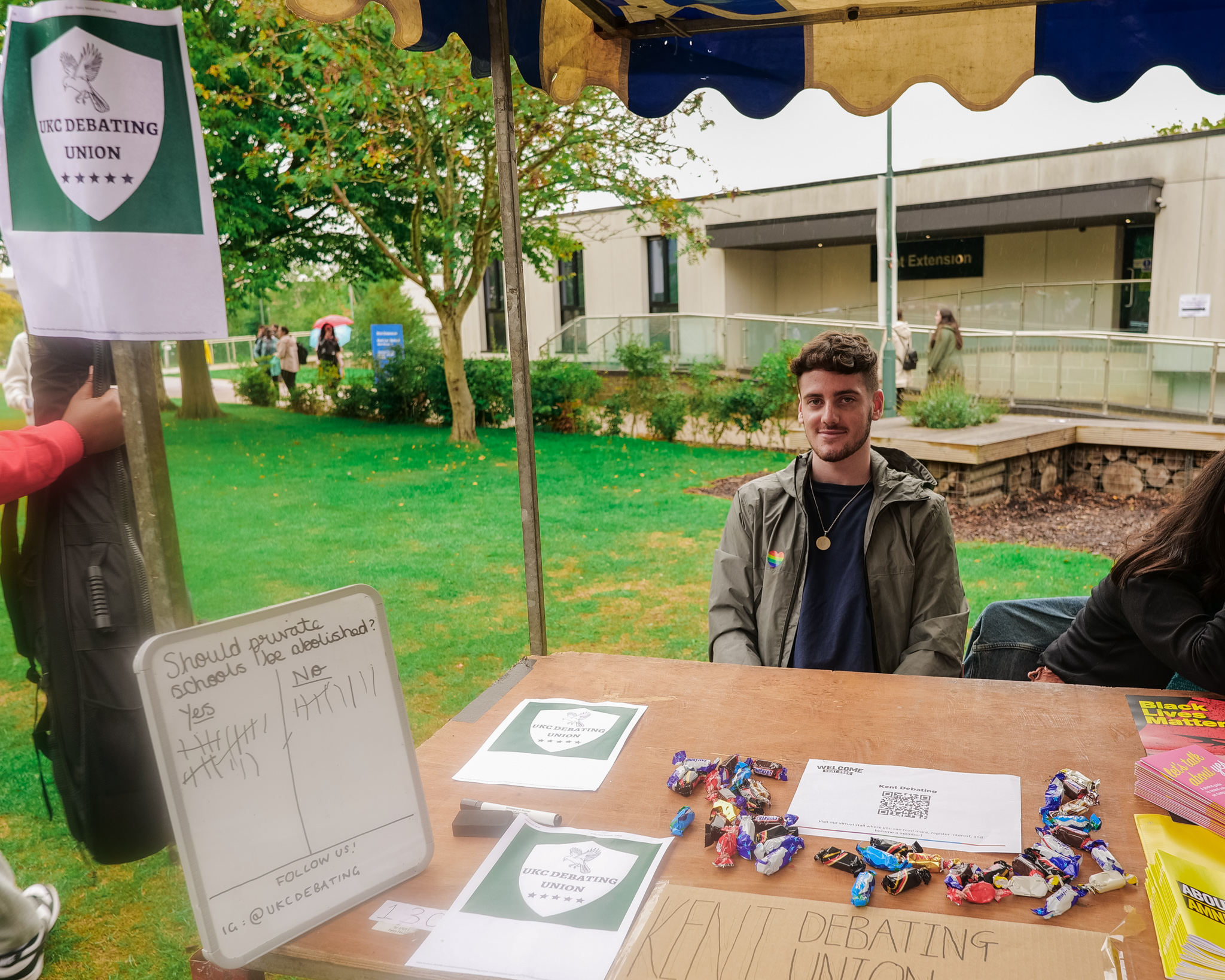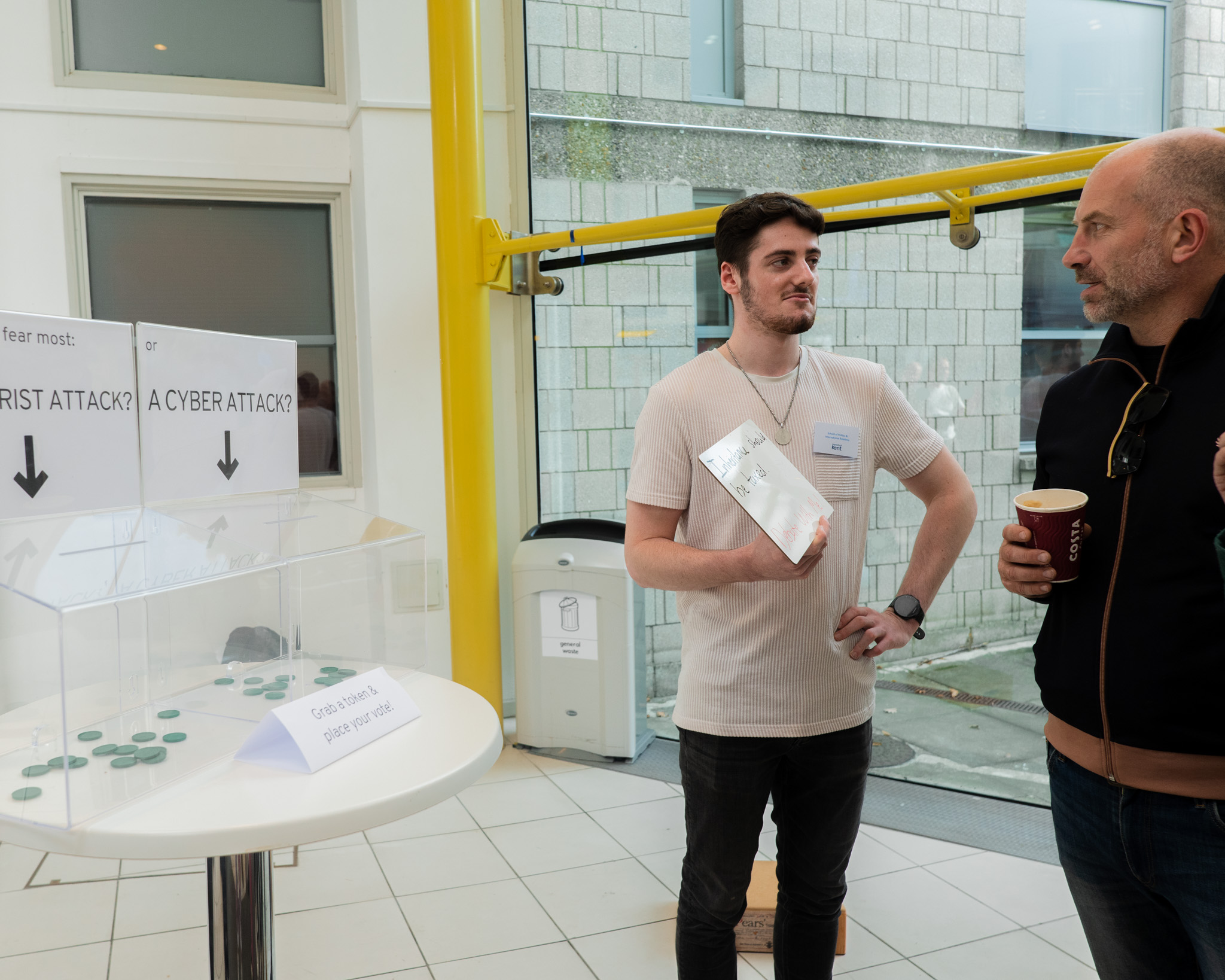The rise of the far right in France inspired Charlie Cushway to master the art of debating. But when he tried to join the debating society at Kent he discovered there wasn’t one. So he started it.
It highlighted to me the extent to which debating skills are vital in the world of politics, and, in turn, incited me to try and improve my own debating and public speaking skills.
I searched for a debating society at the University of Kent, but discovered that it was unfortunately no longer running. It was a throwaway comment I made to my friend, Halle Breed, that started us in pursuit of reviving the debating society at the University.
Our aim was to set up a society that provides a fun and safe setting to debate on key issues, while encouraging and inspiring people to practise public speaking. We also wanted this to be accessible to all, regardless of a person’s experience in debating/public speaking, or the degree they were studying. And, as this was a new society, we decided to call it: the Kent Debating Union.
We were later joined by Meg Payne and Harry Mckenzie, and together we explored the ways in which we could put this idea in motion. However the truth is, despite our best intentions and our dedication, we really had no idea if anyone would be interested in joining the society.
Therefore, we were delighted and encouraged by all the support we got during the Welcome Fair, with close to 50 students signing up to be members of the society in the days after.
In its first year, the Kent Debating Union has hosted countless weekly debates on topics ranging from “Should the Monarchy be abolished?” to “Should all topics be up for debate?”.
Although there are countless different debating styles, we decided not to let a rigid debate structure hinder the flow of an engaging and fruitful discussion. Fundamentally, our debates allowed for two opposing teams to confront ideas and facts, with the aim of being the most persuasive side.
We’ve also collaborated with a variety of different societies on a diverse range of topics. During the first term, we hosted an event with both the Human Rights Law society and Sports Law society on the topic: “Should major sporting events be held in countries with human rights violations?”.
During the second term, we debated with the European Law Students Association society on: “Are the current University lecturers’ strikes in the UK justified?”
These diverse topics were shaped by our desire to debate on both the big issues of today, but also more traditional discussions. These lively events gathered over 30 attendees!
For this year’s committee, one of the most rewarding aspects of setting up this society has been to witness the friendships formed during our weekly debate sessions. We were blessed each week with kind and considerate members that helped ensure a good feeling within the society.

We set up the debating society in the hope that it would have a positive impact. But as committee members who were all in our final year, we also hoped the society would carry beyond this year. Last month, we held our elections. The recently elected new committee is made up of talented, ambitious and compassionate individuals, and we are very excited to see the direction the society takes next year!’
Charlie Cushway is studying Politics and International Relations (Bi-diplôme) – BA (Hons).


